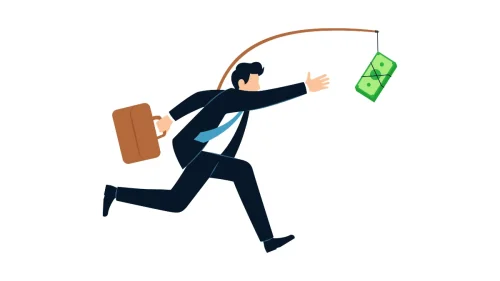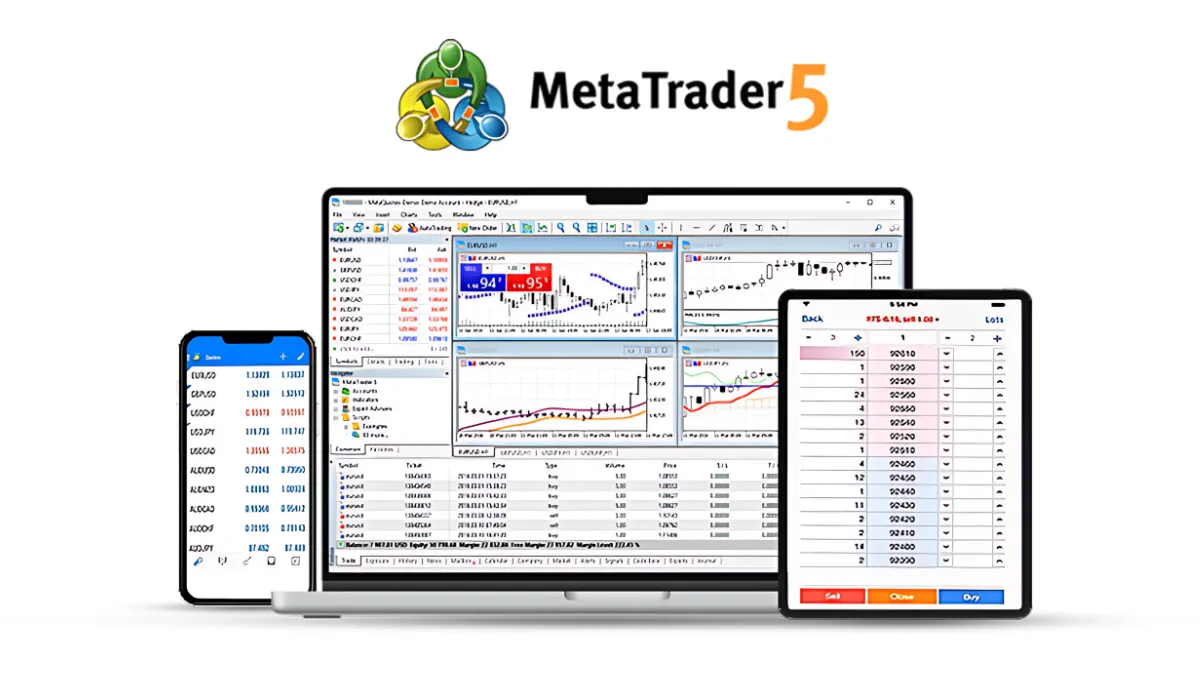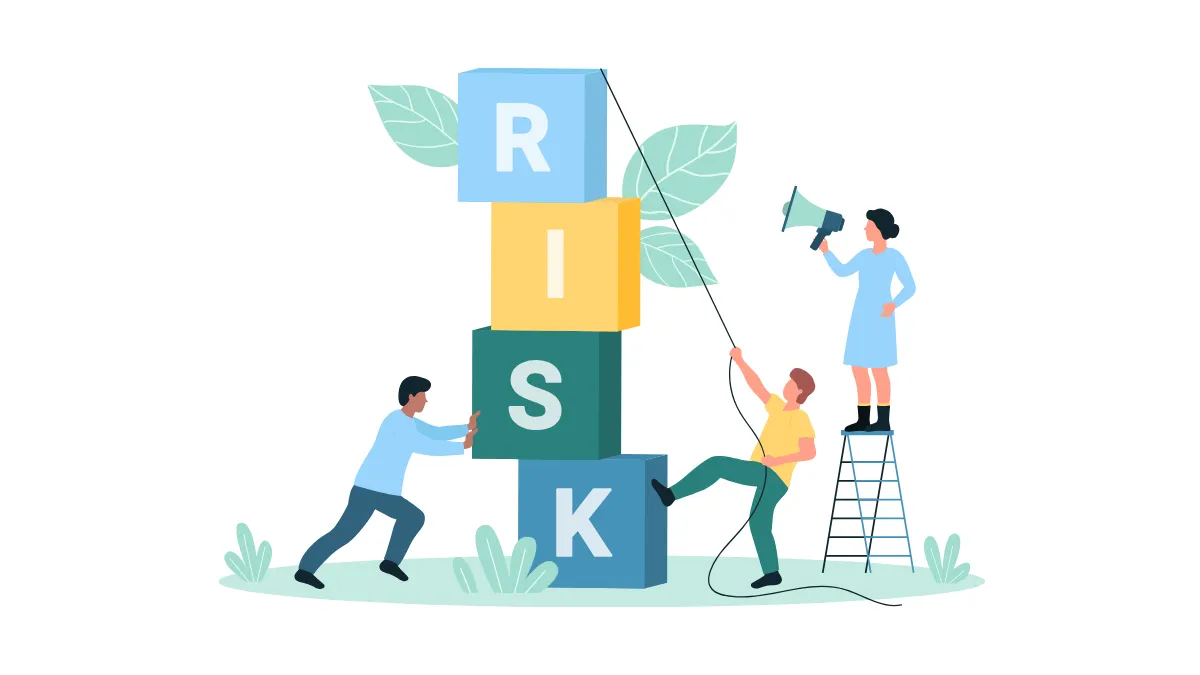In foreign exchange margin trading, "leverage" is a familiar yet challenging concept. Leverage allows investors to control larger trades with a small amount of capital, but it can also lead to devastating financial losses due to excessive leverage. This article will delve into the meaning, causes, consequences, and how to effectively avoid the trap of excessive leverage.
The benefit of leverage is that it can amplify returns, but it also means that losses will be magnified as well. Therefore, leverage is a double-edged sword and should be used cautiously.
Characteristics of excessive leverage:

Remember, the true value of leverage is to assist your trading, not to dominate it. Trading with a rational and cautious attitude is the key to standing undefeated in the forex market.
1. What is leverage? Understanding from the basics
Leverage in the foreign exchange market refers to traders using borrowed funds to conduct larger-scale trades. For example, if the leverage ratio is 1: 100, you only need a $100 margin to control a trade worth $10,000.The benefit of leverage is that it can amplify returns, but it also means that losses will be magnified as well. Therefore, leverage is a double-edged sword and should be used cautiously.
2. What is excessive leverage? The key to expanded risk
Excessive leverage refers to traders using a high leverage ratio beyond their financial capacity, causing even minor market fluctuations to potentially deal a fatal blow to their funds.Characteristics of excessive leverage:
- High leverage ratio: Using leverage far beyond the market's recommended range, such as 1: 500 or higher.
- Lack of risk management: Not setting stop-loss points or reasonable position control, leaving trades fully exposed to market fluctuations.
- Insufficient funds: A low available margin ratio, easily leading to a margin call in a short time.
3. Causes of excessive leverage
- Get-rich-quick mentality
Investors harbor fantasies of "getting rich overnight," using high leverage to amplify profits but ignoring potential risks. - Misjudgment of market volatility
Failing to thoroughly research market volatility characteristics, overconfidently increasing the leverage ratio, leading to funds being unable to withstand adverse fluctuations. - Improper trading strategy
Lack of experience or using overly aggressive strategies, unable to flexibly adjust leverage according to the scale of funds.

4. Consequences of excessive leverage
- Rapid capital loss
For example, if the leverage ratio is 1: 500, a market fluctuation of just 0.2% could result in a 100% margin loss. - Increased psychological pressure
High leverage causes traders to face extremely high risks with every step, increasing psychological burden and making it easier to make wrong decisions. - Increased risk of margin call
During severe market fluctuations, the margin cannot withstand losses, and brokers may forcefully close positions, leading to instant capital wipeout.
5. How to avoid excessive leverage? A stable strategy is key
- Choose a reasonable leverage ratio
- Effective risk management
- Set stop-loss: Set a reasonable stop-loss range for each trade, controlling losses within 1-2% of total capital.
- Reasonable position size: Do not use all capital for a single trade, diversify risk.
- Understand market characteristics
- Control emotions
Beginners are advised to choose a leverage range of 1: 10 to 1: 50 to avoid using excessively high leverage.
Deeply study market trends and volatility patterns to avoid rash trading.
Avoid letting greed or fear dominate trading decisions, maintain a calm mindset.
6. Conclusion: Moderate leverage is the path to success
Excessive leverage is one of the most common mistakes among forex traders, but it is not unavoidable. By learning risk management techniques, choosing an appropriate leverage ratio, and establishing a stable trading strategy, you can find balance in the forex market and achieve long-term stable returns.Remember, the true value of leverage is to assist your trading, not to dominate it. Trading with a rational and cautious attitude is the key to standing undefeated in the forex market.
FAQ: Common questions about excessive leverage
- What is the difference between excessive leverage and leverage itself?
- What leverage ratio should beginners choose?
- What does a margin call mean? How to avoid it?
- Why does high leverage increase psychological pressure?
- How to effectively avoid the risks of excessive leverage?
- Control the leverage ratio within a reasonable range.
- Use risk management tools (such as stop-loss).
- Maintain a stable trading strategy and rational investment mindset.
- Is high leverage suitable for all traders?
Leverage is a tool in forex trading that, when used appropriately, can improve capital efficiency; excessive leverage is a leverage ratio that exceeds risk tolerance, potentially leading to rapid capital loss.
Beginners are advised to choose a leverage range of 1: 10 to 1: 50, allowing for appropriate capital utilization while controlling risk.
A margin call means the margin is insufficient to cover losses, leading to the broker forcefully closing positions. Methods to avoid a margin call include using an appropriate leverage ratio, setting stop-loss points, and controlling position size.
High leverage amplifies the gains and losses of each trade, causing traders to face greater financial volatility pressure, which may affect calm judgment and lead to emotional trading.
The following measures can be taken:
High leverage is not suitable for everyone, especially traders without sufficient market experience or risk tolerance. The use of leverage should be chosen based on individual capital scale and risk preference.
Hi, we are the Mr.Forex Research Team
Trading requires not just the right mindset, but also useful tools and insights. We focus on global broker reviews, trading system setups (MT4 / MT5, EA, VPS), and practical forex basics. We personally teach you to master the "operating manual" of financial markets, building a professional trading environment from scratch.
If you want to move from theory to practice:
1. Help share this article to let more traders see the truth.
2. Read more articles related to Forex Education.
Trading requires not just the right mindset, but also useful tools and insights. We focus on global broker reviews, trading system setups (MT4 / MT5, EA, VPS), and practical forex basics. We personally teach you to master the "operating manual" of financial markets, building a professional trading environment from scratch.
If you want to move from theory to practice:
1. Help share this article to let more traders see the truth.
2. Read more articles related to Forex Education.





